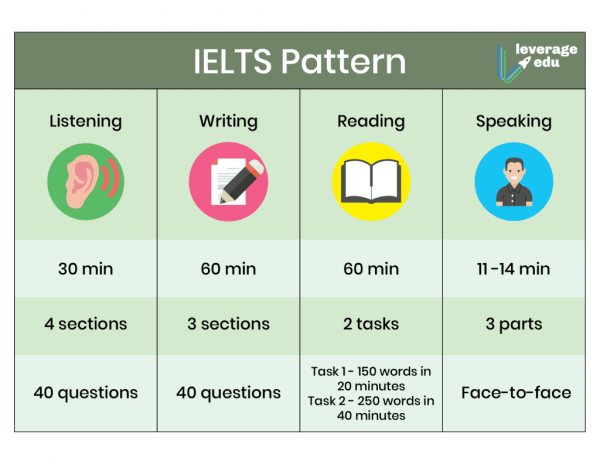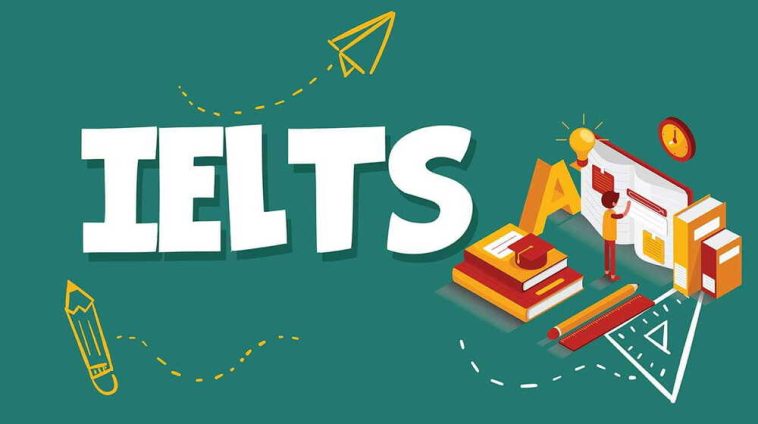The International English Language Testing System (IELTS) is the world’s most popular and widely accepted English test. Achieving a high IELTS score requires a deep understanding of the test and consistent practice. This article will help you with some easy tips and tricks to get a high score on the IELTS Pakistan test.
IELTS is an assessment test of the English language for individuals who are seeking to travel abroad for higher education, a job, or migration. It assesses the candidate’s English Language proficiency based on the four language skills: listening, reading, writing, and speaking.
IELTS Pakistan Format
There are two types of IELTS tests: IELTS Academic and IELTS General Training. Both are divided into four segments: reading, writing, listening and speaking.
The reading and writing sections of the academic test differ from those of the general test.
Candidates have to take the reading, writing and listening tests on the same day but the speaking segment can be scheduled for either the later part of the day or within seven days from taking the test.
Here is an overview of the IELTS exam:

Band Scores
Each section of the test is scored on a 9-band scale. Candidates are marked from 1 to 9 in each section and the overall band score is calculated by taking the average scores of all four sections and rounding the sum off to the nearest whole or half band.
Tips to Achieve a High Score in IELTS Pakistan
IELTS is a language test and the candidate’s proficiency level in the English language determines his or her band score.
Here are how you can boost your IELTS score:
IELTS Listening
- Practice all the test questions such as multiple-choice, labeling, matching questions, etc.
- Read the questions before listening. Around 30 to 60 seconds are provided to read the questions beforehand.
- Listen carefully to the audio instructions and be mindful of the mentioned word limit.
- Do not make guesses or use background knowledge.
- Pay close attention to negative words such as not, no, never; similar sounding words; previously mentioned words; and synonyms.
- Be sure to check the answers within 30 seconds of the pause time provided after every section.
- Use correct grammar and spelling in the answers.
IELTS Reading
- Practice reading techniques such as intensive reading, skimming, and scanning.
- Before taking the test, practice reading long texts from different subject areas.
- Time management is really important in reading. The first passage is usually the easiest and the third passage is the most difficult.
- Try reading 50 words in a minute.
- Underline key information and make notes in the reading passage.
- If you are unable to find the answer to a particular question, do not waste excessive time on it. Skip to the next question. You can figure out the answer at the end.
IELTS Writing Tasks
- Good grammar is key to scoring high in the writing section.
- Use complex sentences, compound sentences, modal verbs, question sentences, and conditional sentences.
- For a high band score, try to strike balance between the ‘variety’ and ‘accuracy’ of sentences.
- Carefully analyze each task and underline keywords.
IELTS Speaking
- Practice speaking as much as possible in English.
- Read English books and watch English documentaries, shows, etc.
- As it is a formal speaking test, use neutral tones while speaking. Do not rush your words, be friendly and open, be straightforward, and smile.
- Try to give extended explanations that are relevant to the topic.
- The examiner expects you to speak fluently, confidently, and without any hesitation.
- Construct your answer using complex words, and coherent and correct grammar.
- If you cannot understand a question, ask the examiner for clarification or repetition.
IELTS Preparation

Here are some general strategies that will help you ace the IELTS exam are:
- Make a workable study plan.
- Improve your vocabulary, grammar, and communication skills by listening to podcasts and reading newspapers or online articles.
- Practice is the key to success. Therefore, practice and prepare for your IELTS test in the best manner.
- Time management is an important factor in acing the test. Time yourself while practicing.
If you have any queries, ask us in the comments section.







